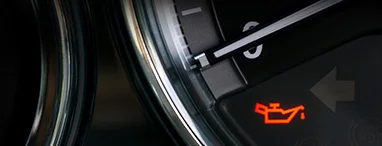False Advertising Attorney Serving California and Nationwide
The Kalfayan Law Firm is dedicated to protecting consumers in California and across the country. We help consumers defrauded by product manufacturers, distributors, and service providers whether they suffered financial loss, personal injury, or a combination of both. If you were misled into purchasing a product by false advertising, you have the right to get your money back and recover all other potential damages. Our California false advertising and consumer protection legal team is ready to help.
Whether you have an individual complaint about false advertising or you have suffered harm similar to dozens, hundreds, or thousands of other victims, the Kalfayan Law Firm is ready to help you fight for compensation and justice. For help in California or nationwide, call our office in Del Mar just north of San Diego for a free consultation at 619-232-0331.
Common Types of False Advertising Claims
False advertising can occur in many different ways. If you were deceived, defrauded, or otherwise improperly induced into paying for goods or services, you might have a false advertising claim. Depending upon the nature of the defendant’s conduct and the degree to which you were harmed, you could have a number of legal claims and remedies available.
At the Kalfayan Law Firm, we help victims of all kinds of false advertising recover compensation for the harm they have suffered. Some of the more common forms of false advertising in California include the following:
- Misrepresenting Products. Companies cannot claim that a product is one thing, or does one thing, unless the product actually comes as advertised. Products may not be misrepresented on the label or in advertisements. If a product does not do what it says in the ad–such as a “medication” that does not treat the condition as advertised–or the product is otherwise falsely advertised–such as a product that the company claims is “made in France” when it’s actually made in New Jersey–then the company can be held liable for false advertising.
- Misrepresenting Services. Services, like products, must be advertised without falsehoods. Companies cannot make false promises or engage in bait-and-switch schemes. If you pay for a service and the company is unable or unwilling to deliver the service or even the quality of service as advertised, you could have a claim for false advertising.
- Failure to Disclose Key Factors. Consumers are entitled to certain disclosures about products, such as known side effects of pharmaceutical medications. If the manufacturer or distributor fails to disclose vital information about a product or service, they may be liable.
- Flawed Research. If a company claims that a product’s efficacy has been proven through scientific research, that research must actually prove the company’s claims. If the research was biased, conducted by unqualified individuals, doctored, or otherwise flawed, the company could be guilty of false advertising.
- Deceiving Pricing. One of the most insidious forms of false advertising is deceptive pricing. For instance, you might be offered a low or promotional rate for a contract or service only to be shocked upon receiving your bill. You may be quoted a price at the beginning only to learn of a much higher fee after the goods or services have been provided, such as an undisclosed delivery fee, service fee, or cleaning fee. Companies that include hidden fees, use false “compare” prices, or otherwise fail to disclose the actual cost of a good or service at the time of sale can be held liable for their actions.
- Deceptive Contracts. Contracts for goods or services cannot be drafted to deliberately deceive consumers. If your contract includes hidden terms, misleading terms, unreasonable “fine print,” unconscionable terms, or other elements that would be easily misunderstood or overlooked by customers, then the product or service provider may be on the hook for a false advertising claim.
- Misleading Use of “Free.” One of the most common forms of false advertising is claiming that a product is “free” in advertisements, as part of a contest, or in other circumstances. If a product is called “free,” it cannot come with hidden fees, subscription costs, or other elements that prevent the product from actually being free.
Contact a False Advertising Lawyer at the Kalfayan Law Firm Today
For help with a false advertising individual or class action claim in California or nationwide, contact the Kalfayan Law Firm in San Diego/Del Mar for a free consultation. We represent local individual plaintiffs and pursue class action litigation throughout the country with diligence and passion, and we are committed to seeing your case through to the end.













